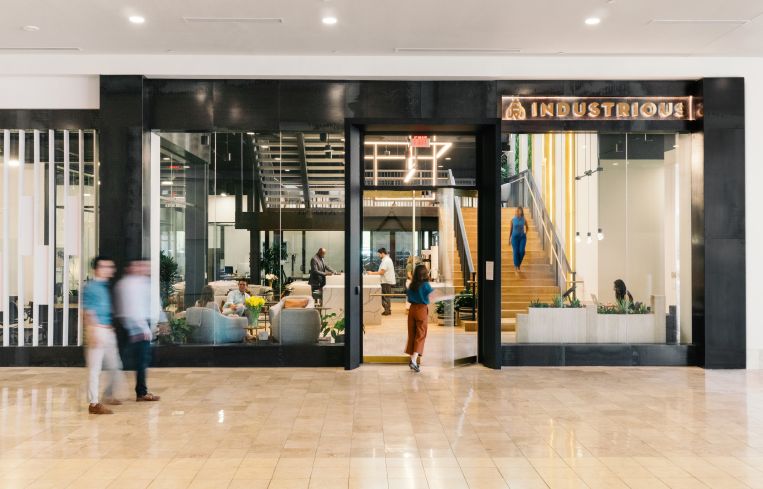WeWork Rival Industrious Raises $80M With Focus on Landlord Partnerships
By Chava Gourarie August 22, 2019 11:13 am
reprints
Flex office provider Industrious has raised $80 million in a series D round, from investors that include real estate landlords, venture capital firms and Equinox, the company announced today.
It’s the second WeWork rival to announce funding since the coworking giant filed its IPO earlier this week.
Industrious, which focuses on management partnerships with both retail and office landlords, operates 80 locations in 45 cities in the United States, and plans to use the funds to grow internationally, according to information from the company.
Investors included venture capital firms Riverwood Capital Partners, Fifth Wall Capital and Wells Fargo Strategic Capital — all previous investors — and real estate companies Brookfield Properties Retail and TF Cornerstone, among others. The new round brings the total funding for the 6-year-old company to $222 million.
“Industrious is among a new cadre of real estate companies pushing the traditional landlord-tenant relationship into a hybrid of service-provider and hospitality expert,” said TF Cornerstone principal Jake Elghanayan.
Another investor was Equinox, with whom Industrious had struck a partnership deal earlier this year in which Industrious would manage flex office space inside Equinox gyms, with its first location at Hudson Yards.
The Equinox partnership was indicative of the Industrious strategy to operate outside the traditionally office asset class.
As a relative newcomer to the crowded field of flex office provider, Industrious has differentiated itself through its landlord partnerships, and particularly by aligning itself with non-office landlords. In addition to working with office landlords like Hines and Jamestown, Industrious has partnered with retail landlord like Macerich to add flex office space to shopping centers, further blurring the lines between live, work and play assets.
The flex office firm has also focused on secondary and suburban markets, an area that industrious CEO Jameie Hodari believes is underserved. “The fusion of a great workplace product with other elements of someone’s life — wellness, fitness, hotel, healthcare, shopping — I think that is in certain ways, particularly a need in less dense cities,” Hodari told Commercial Observer in a recent interview.
“This is particularly powerful in [places like] suburban Atlanta; that’s where it’s really going to pay off,” he added.
Since its last funding round in 2018, the company has grown its footprint by 129 percent, and has seen revenue grow 140 percent year-over-year, per numbers provided by Industrious. It expects to be profitable by the first quarter of 2020.



